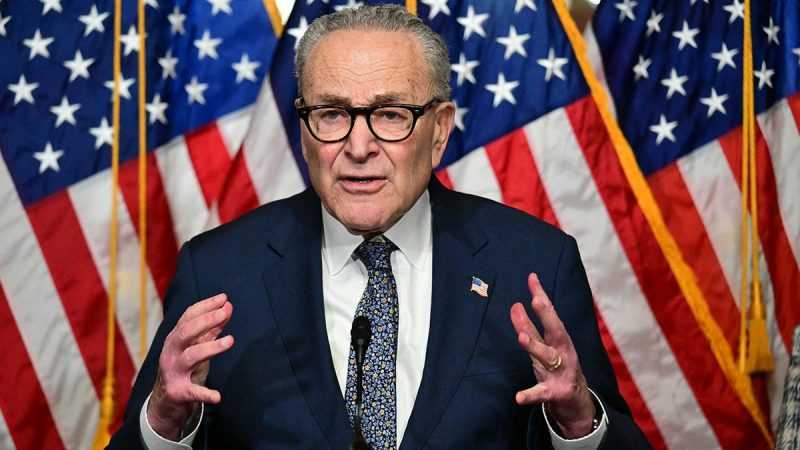The ball is rolling to reopen the government, but there is still much left to do in the Senate before the record-shattering shutdown comes to an end.
Sunday night’s successful vote, which saw eight Senate Democrats splinter from Senate Minority Leader Chuck Schumer, D-N.Y., and their colleagues, was a massive step forward in the shutdown slog.
But there are several votes left and procedural roadblocks that could be weaponized that could grind the Senate’s march to advance its package to the House to a halt. If all 100 senators agree to fast-track the process, the package could move as quickly as Monday night.
But if not, the bipartisan plan could stagnate in the upper chamber for several days.
Senate Majority Leader John Thune, R-S.D., was optimistic that the Senate could finish its work Monday night but said that would be up to Senate Democrats.
‘Obviously, there are objections from the left, but as long as the votes are there to proceed, we will move forward, and hopefully without a lot of disruption or delay or fanfare right now,’ Thune said. ‘The point is, we are on a path to get the government reopened, and we should try to get it done as soon as possible.’
Schumer didn’t say whether Democrats would block any attempt to move the process along but did blame President Donald Trump and Republicans for the shutdown, which stretched into its 41st day on Monday.
The core of Democrats’ shutdown demands rested on a guarantee that expiring Obamacare subsidies would be dealt with before Schumer released the votes to reopen the government. But, the deal that was struck among bipartisan negotiators only reaffirmed Senate Majority Leader John Thune’s, R-S.D., earlier promise of a vote once the shutdown ended.
‘Democrats demanded that we find a way to fix this crisis and quickly,’ Schumer said. ‘But Republicans have refused to move an inch, so I cannot support the Republican bill that’s on the floor, because it fails to do anything of substance to fix America’s healthcare crisis.’
Whether Senate Democrats are in line with a cohesive strategy to block the package remains to be seen. But Sen. Ruben Gallego, D-Ariz., told Fox News Digital that he ‘didn’t hear anything’ about objections or blocks during the Democratic caucus’ closed-door meeting Sunday night.
‘I think a lot of us are just kind of taking in the information we heard today, talking to each other as Senate colleagues, and then we’re gonna make determinations later,’ he said.
And Sen. Bernie Sanders, I-Vt., who was furious at the outcome of the deal, appeared to put any chance of him objecting on ice.
‘I understand that the way the process has been developed, it is impossible to delay the votes that are going to take place,’ Sanders said. ‘And if that were not the case, that is certainly what I would do.’
Still, there is a worry that there may be some dissension within the GOP’s ranks from Sen. Rand Paul, R-Ky.
Paul is unhappy with the addition of language in the three-bill spending package that he argued would kneecap the hemp industry in his state, which played out in a battle between him and fellow Kentucky Republican Sen. Mitch McConnell earlier this year.
A spokesperson for Paul told Fox News Digital that Paul affirmed ‘his commitment to reopening the government without delay. However, he objects to the inclusion of provisions in the government-funding package that unfairly target Kentucky’s hemp industry — language that is unrelated to the budget and the government-reopening goal.’
And Paul further doused the notion that he would object with cold water, noting that he had filed an amendment to strike the provision in the bill.
‘Just to be clear: I am not delaying this bill,’ he said on X.
